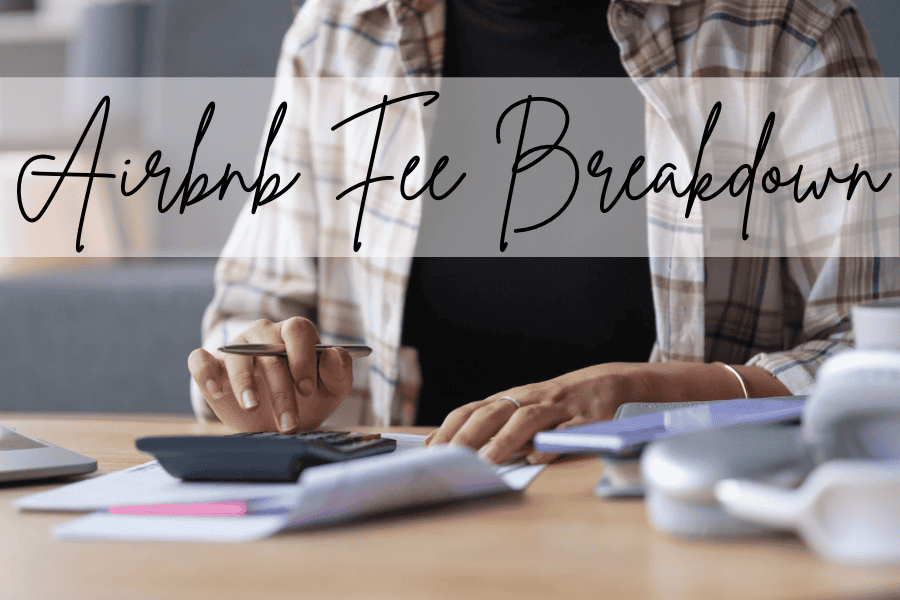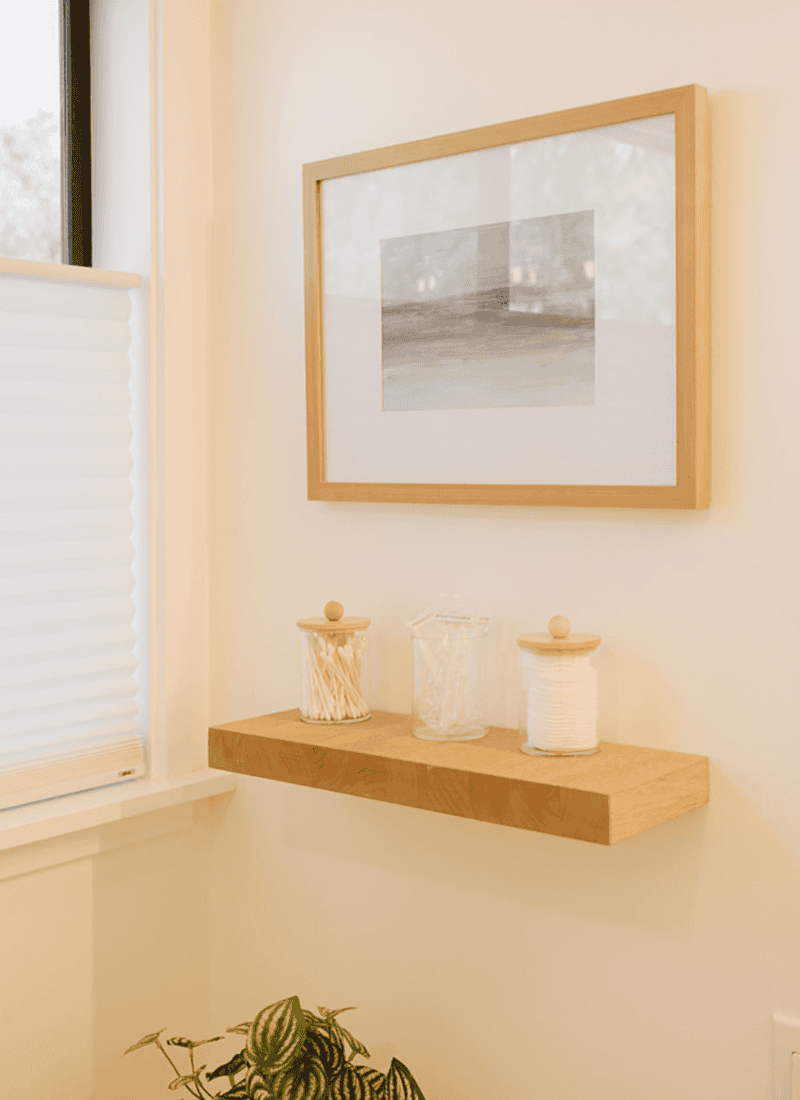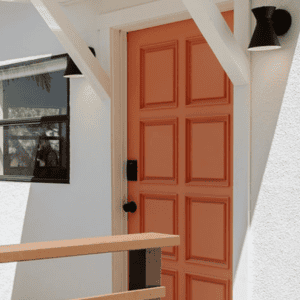This post may contain affiliate links, meaning if you decide to make a purchase via my links, I may earn a commission at no additional cost to you. See my disclaimer for more info.
Did you know Airbnb charges service fees to both you as the host and your guest? So what is the Airbnb fee breakdown and how much can you actually make as a host?
I will get into that in this article starting with why Airbnb charges service fees in the first place and what you should do as a host.
This post is all about the Airbnb fee breakdown.
The Airbnb Fee Breakdown
Why does Airbnb charge service fees?
The Airbnb platform is an online travel agency (OTA) and as of 2024 is the largest OTA on the internet! They attract travelers from all around the world and assist in marrying short term rentals business owners with prospective travelers. That is the service they provide and they need to be paid for that service. All the support services that go along with it like AirCover, technical support, Google rankings and marketing they do for their listings is a benefit to short term rental business owners and takes away a huge expense for them trying to get customers.
What are my options?
Airbnb offers two fee structures: (1) Split-fee and (2) Host-only fee
Split-fee
This is by far the most common fee structure amongst hosts. In this structure, most hosts pay 3% per reservation and that 3% is calculated from the booking subtotal. The booking subtotal is the nightly rate and other fees charged by the host excluding the guest service fee and taxes. Now the guest service fee is as high as 14.2% of the booking subtotal. If the guest is booking in a different currency, the guest service fee could be as high as 16.5% to cover some of the additional expenses of that currency conversion service.
Host-only fee
This fee structure is very traditional in the travel industry and other platforms typically don’t charge the guest a fee. In this structure, the host pays 14-16% per booking subtotal and no fees are passed along to guests. This fee structure is mandatory for some types of listings (traditional hospitality) so make sure you understand the guidelines from Airbnb.
Make sure you check out these guidelines from Airbnb.
So, which option do I pick?
This may seem obvious and most of you would say Split-fee, please! That is the structure I use in my business but the Host-only fee structure is one to consider in a competitive market. We will get into that later but the traditional Airbnb option is the Split-fee structure. This is the one the platform started with and that most hosts on Airbnb use. Do not feel apprehensive to use this structure as most guests looking to book through Airbnb will be used to paying the service fee.
Will this affect me getting bookings?
Now, the answer to this question is going to vary based on the market. This is where a tool like Airdna is a great resource. In traditional vacation markets, where hosts have been welcoming vacationers for decades and decades, these guests may not be use to paying a service fee. But rather a nightly/weekly rate and cleaning fee. In the paid version of Airdna, it gives you a break down of the main OTAs guests use to book properties in that market. The main ones are Airbnb & VRBO and it will give you a split percentage of how many guests book through each platform. Depending on that split, it will give you great insight into the kind of traveler you are dealing with.
Airbnb vs. VRBO travelers
In my experience, the VRBO community tends to be an older crowd that is used to booking vacation rentals directly through a company in the local area they are traveling to and have moved over to booking online. So less tech savvy and more into an in person experience when traveling.
On the contrary, the Airbnb guest tends to do well with tech and loves the contactless experience of Airbnb traveling. They will be used to using the platform, therefore comfortable with the fees and conveniences of a contactless check in and stay.
Choosing the right model
With that all said, choosing the Split-fee pricing model will be best in an Airbnb dense market. Most travelers will expect to pay a platform fee and will not be bothered at all. If you’re in a more traditional vacation rental market, I would do the Host-only fee model. Bump up your prices to cover the costs and make sure you do the research on your market!
Which option will get me the most bookings?
Now, the vacation rental game is all about getting the most quality bookings possible.
Let’s define a quality booking: This is a booking where you are getting the best ADR for that month for your market. And you’re hitting the average occupancy rate for that market.
A quality booking IS NOT getting 100% occupancy at the expense of your ADR! Hitting 100% occupancy means you are not charging enough per night. In other words, this means you have a pricing problem. You want to get the highest ADR you can while hitting the average occupancy rate for your market.
Now, getting the most bookings
This is the secret sauce of every vacation rental manager and host. Each person will have their own strategy whether it’s the best design, experience or cheapest price to try and capture an ideal guest. Your booking strategy is so much more than just the type of fee structure but your fee structure is important.
The strategy I see here is to move to a host-only fee structure in a dense split-fee structure market.
If you’re in an Airbnb listing heavy market, this could really differentiate you from the crowd and make your guest feel like they’re getting a deal. To cover your costs, I’d recommend you charge on the higher end of the ADR for your market. Some Airbnb seasoned travelers will notice but most won’t. They’ll feel like they’re getting a killer deal on an Airbnb listing.
Want to know how to always get a discount on an Airbnb stay? Check out this article!
What are your thoughts on the Airbnb fee breakdown? I’d love to know in the comments below.
This post was all about the Airbnb fee breakdown.
This post may contain affiliate links, meaning if you decide to make a purchase via my links, I may earn a commission at no additional cost to you. See my disclaimer for more info.






Love this thanks for breaking it down